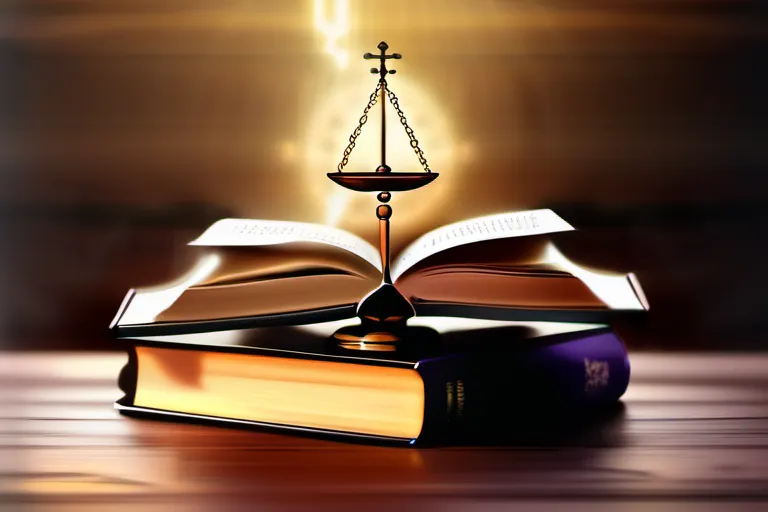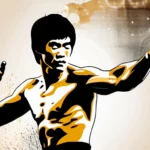Exploring the Distinct Features of Philosophy and Religion
In this article, we delve into the fascinating world of philosophy and religion, uncovering their unique aspects that set them apart. From the quest for meaning to the exploration of the divine, join us as we journey through these two captivating disciplines.
The Quest for Meaning: Philosophy’s Role
Imagine life as a vast, unexplored jungle, where every path you take could lead to new discoveries about existence and meaning. Philosophy, in its quest for meaning, is like a bold adventurer navigating these unknown territories. It asks us profound questions: What gives our lives purpose? How do we know what’s real? Can we truly understand the world around us?
These inquiries are not just academic exercises but deeply personal explorations that shape our understanding of reality and our place in it. Through dialectic, philosophers engage in a continuous dialogue with themselves, others, and the universe, seeking to unravel the complexities of existence.
Consider Socrates’ famous assertion: ‘An unexamined life is not worth living.’ This statement encapsulates philosophy’s drive to question every aspect of our lives. By constantly probing the depths of knowledge and truth, philosophy encourages us to think critically about our beliefs and actions. It serves as a beacon in the dark forest of uncertainty, guiding us towards a more meaningful existence.
Just like a philosopher is always on the lookout for new ideas and insights, so too must we remain open to the unexpected paths that life presents. Philosophy teaches us to value the journey of inquiry over the destination, much like hiking in an unfamiliar landscape where every step reveals something new.
In a world full of noise and distractions, philosophy offers a quiet space for reflection. It challenges us to confront uncomfortable truths about ourselves and our society, fostering personal growth and intellectual curiosity. By delving into these questions, we may find answers that not only enrich our understanding but also provide a framework for making sense of the chaos around us.
So, in your own quest for meaning, remember that philosophy is not just a discipline; it’s a way of life. Embrace its challenges and you might discover a deeper connection to reality itself. After all, isn’t seeking an answer to those big questions what makes our lives truly worth living?
The Divine Connection: Religion’s Role
The Divine Connection: Religion’s Role
Have you ever wondered why people from different cultures and time periods find themselves drawn to religion? Could it be that religion serves as a bridge, connecting us to something greater than ourselves? Is there a divine presence that resonates with our innermost selves?
In many ways, religion acts like a lighthouse in the vast ocean of human existence. Just as a lighthouse guides ships safely through treacherous waters, religion offers guidance and comfort to those navigating life’s tumultuous seas. It provides a framework for understanding the world and our place within it.
Consider the diverse array of religious beliefs and practices that have emerged throughout history. From the ancient rituals of Hinduism to the ethical teachings of Buddhism, from the monotheistic traditions of Judaism, Christianity, and Islam to the polytheistic pantheon of Greek and Roman gods – each offers a unique lens through which to view our existence.
But what exactly do these religions offer that is so compelling? For many, it’s the sense of community and belonging that religion fosters. In a world often filled with isolation and uncertainty, religious communities provide a sense of comfort and support. They offer rituals and practices that help individuals connect not just with each other but also with something higher – whether that be a personal deity or an overarching divine force.
The practices within religions can vary widely – from prayer and meditation to pilgrimage and fasting. These practices often serve as a means of communication between the individual and their spiritual entity, allowing them to express gratitude, seek guidance, or ask for forgiveness. Is it not fascinating how these shared rituals create a universal language that transcends boundaries?
Religion also provides a narrative through which individuals can make sense of their lives. It offers stories of creation, sacrifice, and redemption – narratives that shape our understanding of the world and our role within it. These stories often inspire individuals to live more virtuous lives and seek moral and ethical guidance.
In essence, religion plays a profound role in connecting us with the divine. Whether through communal worship or personal meditation, religious practices serve as a bridge between the mundane and the extraordinary – offering solace, meaning, and purpose. So, is it possible that our search for a deeper connection with something greater than ourselves is inherently rooted in these ancient traditions?
Philosophy and Religion: Similarities and Differences
Philosophy and religion, often seen as two distinct paths to understanding the world around us, are indeed more intertwined than one might initially think. Both seek to explore the depths of existence, but they approach this quest in markedly different ways. How do philosophy and religion navigate their respective terrains, and what makes them unique?
Imagine philosophy as a detective, meticulously piecing together fragments of knowledge from various sources—logic, science, history—to construct a coherent worldview. This detective doesn’t just accept facts; it questions everything. It’s like assembling a puzzle where each piece must fit perfectly, leaving no room for superstition or dogma.
Religion, on the other hand, can be likened to a map that guides us through life’s complexities with stories and symbols. It often relies more on faith and tradition than empirical evidence. Here, people find comfort in narratives that explain their place in the world, sometimes even in the face of uncertainty.
Both fields grapple with fundamental questions like “What is good?” or “Why are we here?” Yet, philosophy tends to dissect these issues through rigorous argumentation and critical thinking. For instance, a philosopher might explore moral theories to understand what actions truly define goodness. Religion, meanwhile, might offer commandments or ethical codes that guide behavior but often do so with less emphasis on philosophical debate.
Consider the role of ethics in both fields. Ethics in philosophy is like a compass guiding us through complex decisions based on rational principles. In religion, ethics are akin to commandments—directives from a higher authority meant to be followed without questioning. This distinction highlights how philosophy emphasizes individual reasoning and critical thinking, whereas religion often relies on divine guidance and established traditions.
Their differences in approach highlight the complementary nature of these disciplines. While one might focus more on logical analysis, the other leans towards faith and tradition. Together, they offer a rich tapestry of human inquiry into the meaning of life, challenging us to think deeply about our existence and the world around us.
The Impact of Philosophy on Religion
Have you ever wondered how philosophical ideas have woven themselves into the very fabric of religion? It’s like asking how the roots of a tree intertwine to form its trunk and branches; philosophy has been the invisible force shaping religious beliefs and practices throughout history.
Let’s consider a simple question: what would Christianity look like without the philosophical musings of Plato or Aristotle? Would it still hold as an integral part of Western thought, influencing not just theology but also ethics, politics, and even art? Philosophical concepts such as logos, the principle of reason and order, have been crucial in interpreting religious texts and rituals.
The impact of philosophy on religion is profound. For instance, the concept of soteriology—the study of salvation—has evolved significantly through philosophical inquiry. The Stoics, with their emphasis on living in harmony with nature, provided a framework for understanding Christian teachings on suffering and redemption. This interplay between philosophical ideas and religious practices has not only enriched both fields but also led to the development of new schools of thought.
Similarly, religion has profoundly influenced philosophy as well. The existence of God, morality, and the purpose of human life—这些问题哲学家们已经探讨了千年。试想一下,如果没有亚里士多德的“第一推动者”(Prime Mover)理论,我们对基督教中的上帝观念会有怎样的理解?或者,如果没有佛陀的教导,伦理学和道德哲学会是什么样子?宗教不仅为哲学提供了丰富的思考材料,还激发了众多深刻的讨论。
In conclusion, the relationship between philosophy and religion is a dynamic dance of influence and interdependence. Just as the branches of a tree reach out to capture sunlight, so too do philosophical ideas extend their reach into religious realms, shaping beliefs and practices in profound ways. As we explore this interplay further, we uncover not just the history of our thoughts but also the intricate tapestry that makes up human civilization.
Religion’s Role in Shaping Society
Religion has been like a shaping force throughout history, molding societies and cultures from ancient times to the present day. Imagine if we could peel back layers of time to explore how religions have intertwined with human lives—would we find that they’ve always been at the heart of societal structures? Religion often serves as a bonding agent, uniting communities through shared beliefs, practices, and rituals. Consider the Great Wall of China; while it was built to protect, it also acted as a barrier between different cultures, much like how religions have delineated societies into distinct groups.
From ancient Egypt’s pantheon of gods to the monotheistic worship of Islam, Christianity, and Judaism, each religion has left an indelible mark on its respective society. Take Muhammad, for instance—his teachings not only shaped a new faith but also transformed Arabian Peninsula into a formidable empire. Similarly, in Europe during the Middle Ages, the Church wielded immense power, influencing everything from politics to art and science.
The role of religion in shaping ethics is another fascinating aspect. Think about how Confucianism in China emphasized social harmony and respect for authority, or how Hinduism’s principle of dharma (duty) guides individuals in their moral obligations. These ethical frameworks have guided societies to navigate complex interpersonal relationships and maintain order.
Moreover, religion has often been a catalyst for change, inspiring revolutions and social reforms. From the abolitionist movement driven by Christian ideals in 19th-century America to the nonviolent civil rights efforts led by Mahatma Gandhi, religious ideologies have played crucial roles in advocating for justice and equality.
As we look back on religion’s profound impact, it becomes clear that its influence extends far beyond the confines of temples or churches. Religion has been a light, illuminating moral paths through dark times, but also sometimes a sword, cutting deep divides between people and communities.
Understanding this complex interplay is crucial as we navigate the future. The legacy of religion will continue to shape societies, especially in regions where it remains a central part of daily life. Yet, with globalization and increased interconnectivity, religions are also adapting, blending, and sometimes conflicting in new ways. How these changes unfold will be fascinating to observe.
The Future of Philosophy and Religion
The future of philosophy and religion is a topic that sparks curiosity and debate, much like pondering over the vastness of the universe. How will these ancient disciplines evolve in a world where technology is advancing at breakneck speeds? Will we see new philosophical schools emerge, or are we on the brink of redefining traditional religious practices?
One emerging trend is the intersection between technology and spirituality. Can virtual reality offer new dimensions to spiritual experiences, making them more accessible and profound for individuals worldwide? The digital age has already transformed how people consume information, and now it’s poised to change their spiritual journey as well. How will this impact our understanding of what religious experience truly means?
Another significant challenge lies in the increasing diversity within societies. Philosophers and religious leaders must navigate this complexity, addressing questions about multiculturalism and pluralistic approaches. Can we find common ground that respects all beliefs while fostering a sense of global unity? This is akin to trying to assemble a jigsaw puzzle with pieces from many different cultures, each needing careful placement for the overall picture to make sense.
The rise of environmental awareness also poses profound questions for both fields. How can we reconcile our ethical responsibilities towards nature with our spiritual or philosophical beliefs? Is there a new ecological ethic that must be integrated into these ancient traditions?
As the world becomes more interconnected, philosophy and religion will face challenges in maintaining their relevance. Will they adapt to become more inclusive and open, or risk becoming obsolete in an increasingly secularized society? The future is uncertain, but one thing is clear: both disciplines have a vital role to play in guiding humanity through the complex landscape of the 21st century.
Conclusion
 By understanding the distinct features of philosophy and religion, we gain a deeper appreciation for their role in shaping human thought and culture. Whether you’re a student, scholar, or simply curious, this guide offers valuable insights into these intriguing fields.
By understanding the distinct features of philosophy and religion, we gain a deeper appreciation for their role in shaping human thought and culture. Whether you’re a student, scholar, or simply curious, this guide offers valuable insights into these intriguing fields.











